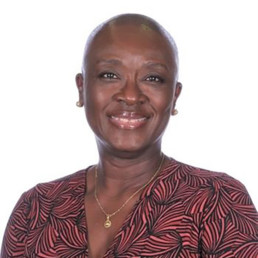
Written by Remi Atoyebi
Remi Atoyebi is an experienced Headteacher and ICF Certified Transformational and Leadership Coach. She is a contributor to The Headteachers’ Handbook and a mentor to over 50 school leaders across the UK. As a leader from a Global Majority background, she is passionate about inclusive leadership, psychological safety, and creating safe spaces for underrepresented voices.
As one of just a handful of leaders from a Global Majority background in the area I serve, I’ve had to do more than lead a school. I’ve had to build trust from the ground up, raise community aspirations, and create a sanctuary of belonging for children who had so often been left behind. Publicly, I was praised. Data climbed. Headlines followed. People saw progress.
But what they didn’t see was me.
They didn’t see the toll it took: emotionally, mentally, physically, to keep showing up, every single day, as the “strong one.” The “resilient” one. The one who could weather it all. Behind the applause, I was slowly falling apart.
As a Black woman in leadership, I became an expert at navigating systems that were never designed for me to thrive in. I wore the armour of excellence because I had no choice. I bore the weight of expectation, not just professionally, but culturally: the silent pressure to prove, to represent, to protect. I was leading a school, yes. But I was also holding up the dreams of my community, the pride of my family, and the unsaid duty to never falter.
Then one day, my body gave in. I was taken by ambulance from work to A&E. I had suffered a Transient Ischemic Attack (TIA): https://www.nhs.uk/conditions/transient-ischaemic-attack-tia/ and soon after, I was diagnosed with Post-traumatic stress disorder(PTSD): https://www.nhs.uk/mental-health/conditions/post-traumatic-stress-disorder-ptsd/overview/
These events were not from one tragic moment, but from the relentless drip-feed of stress, microaggressions, harassment, racial trauma, and systemic pressure that had compounded over years.
The trigger was one parent’s sustained harassment over two and a half years: sometimes emailing up to three times a day to make unnecessary demands, engaging in attention-seeking behaviours, inciting other parents, and making incessant reports to the Local Authority Designated Officer (LADO), Office for Standards in Education, Children’s Services and Skills (OFSTED), the Teacher Regulatory Agency (TRA), and the Information Commissioner’s Office (ICO).
I had been leading while bleeding.
This is what we don’t talk about enough. The unspoken cost of being the first. The only. The one expected to be everything to everyone. For many Black women in leadership, success often comes wrapped in loneliness. We carry the school, the staff, the children, their families and then we carry what no one else sees: the barbed comments, the subtle exclusions, the extra scrutiny.
Over time, I’ve come to name this for what it is…structural neglect. Not always overt. Not always intentional. But neglect nonetheless: of our wellbeing, our emotional safety, our humanity. Mental health services are not culturally competent. DEI work barely scratches the surface. And leadership frameworks rarely account for the invisible labour of navigating bias and battling stereotypes.
The Equality Act 2010 lists both Race and Disability as protected characteristics. But where was the protection when I was unravelling from the inside out? Where were the policies that acknowledged the trauma of ‘performing strength’ in the face of constant pressure? Where was the care for leaders like me?
And let’s talk about race and mental health. Black women are less likely to be referred for therapy, more likely to be misdiagnosed, more likely to go unheard. (https://www.mind.org.uk/information-support/tips-for-everyday-living/racism-and-mental-health/#HowRacismCanAffectYourMentalHealth).
In leadership, the expectation to remain poised and polished becomes a ‘prison’. We silence our needs just to be seen as competent and effective.
So, how do we disrupt this?
We start by telling the truth. We say out loud that leadership takes a toll. We give permission to ourselves and others to feel, to pause, to say “this is too much.”
We embed trauma-informed approaches not just for children, but for the adults in our schools, especially those living through racialised experiences. We make room for healing. For culturally competent therapy. For coaching that holds space rather than just drives outcomes.
We must let go of the myth that strength means silence, and in its place, we embrace a deeper truth that vulnerability is not weakness, it is wisdom. It is the path to healing, to connection and to lasting change.
I’m still healing. I’m still learning how to lead without sacrificing myself. Still untangling from a version of success that asked me to shrink, to be silent, to disappear. But no more. From here on, I will be leading differently: to protect my health, my wellbeing and ultimately, my life.
And if my story does anything, I hope it reminds someone, maybe you, that you are not alone. That leadership must never cost you your health. That you don’t have to break to belong and succeed.

